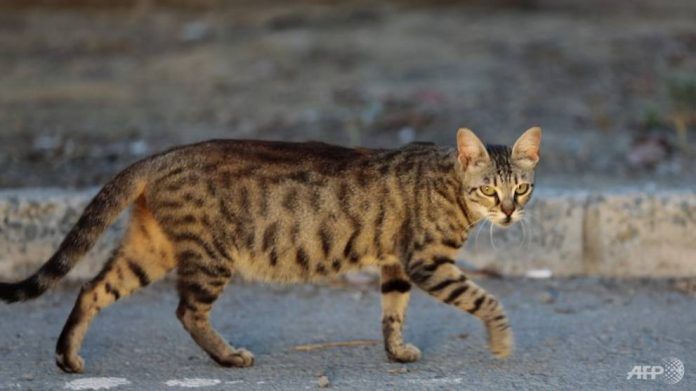A Briton has died after contracting rabies while in Morocco, health officials have said.
Public Health England (PHE) issued a warning to travellers after the UK resident contracted the disease after being bitten by a rabid cat.
No more details have been released about the case.
Rabies does not circulate in either wild or domestic animals in the UK, but between 2000 and 2017 five UK residents became infected with rabies after “animal exposures abroad”, PHE added.
Rabies is a rare but very serious infection of the brain and nerves. It’s usually caught from the bite or scratch of an infected animal, most often a dog.
Rabies is found throughout the world, particularly in Asia, Africa, and Central and South America. It’s not found in the UK except in a small number of wild bats.
It’s almost always fatal once symptoms appear, but treatment before this is very effective. There’s also a vaccine for people at risk of being infected.
How to avoid being bitten or scratched
All mammals (including monkeys) can carry rabies, but it’s most common in:
- dogs
- bats
- raccoons
- foxes
- jackals
- cats
- mongooses
They can spread the infection if they bite or scratch you or, in rare cases, if they lick an open wound or their saliva gets into your mouth or eyes.
Rabies is not spread through unbroken skin or between people.
While travelling in an area where rabies is a risk:
- avoid contact with animals – some infected animals may behave strangely, but sometimes there may be no obvious signs they’re infected
- avoid touching any dead animals
If you’re travelling with a child, make sure they’re aware of the dangers and that they should tell you if they’ve been bitten, scratched or licked by an animal. Check them for any wounds if they come into contact with an animal.
What to do if you’ve been bitten or scratched
If you’ve been bitten or scratched by an animal in an area with a risk of rabies:
- immediately clean the wound with running water and soap for several minutes
- disinfect the wound with an alcohol- or iodine-based disinfectant and apply a simple dressing, if possible
- go to the nearest medical centre, hospital or GP surgery as soon as possible and explain that you’ve been bitten or scratched
If this happens while you’re abroad, get local medical help immediately. Do not wait until you’ve returned to the UK.
If you’ve already returned to the UK without getting medical advice, it’s still a good idea to get help – even if it’s been several weeks since you were bitten or scratched.
It’s unlikely you’ve been infected, but it’s best to be safe. Post-exposure treatment is nearly 100% effective if it’s started before any symptoms of rabies appear.
Treatment after a bite or scratch
If you’ve been bitten, scratched or licked by an animal that might have rabies, you may need specialist medical treatment to stop you getting rabies. This is called post-exposure treatment.
Post-exposure treatment involves:
- cleaning and disinfecting the wound
- a course of the rabies vaccine – you’ll need to have 4 doses over a month if you have not been vaccinated against rabies before, or 2 doses a few days apart if you have
- in some cases, a medicine called immunoglobulin is given into and around the wound – this provides immediate but short-term protection if there’s a significant chance you’ve been infected
The post-exposure treatment you need may be slightly different if you have a weakened immune system.
Treatment should be started promptly – ideally within a few hours of being bitten or scratched – but it’s often safe to delay treatment until the next day if the vaccine or immunoglobulin need to be specially ordered in by your doctor.
Symptoms of rabies
Without treatment, the symptoms of rabies will usually develop after 3 to 12 weeks, although they can start sooner or much later than this.
The first symptoms can include:
- a high temperature (fever) of 38C (100.4F) or above
- a headache
- feeling anxious or generally unwell
- in some cases, discomfort at the site of the bite
Other symptoms appear a few days later, such as:
- confusion or aggressive behaviour
- seeing or hearing things (hallucinations)
- producing lots of saliva or frothing at the mouth
- muscle spasms
- difficulty swallowing and breathing
- inability to move (paralysis)
Once symptoms appear, rabies is almost always fatal. In these cases, treatment will focus on making the person as comfortable as possible.








